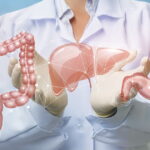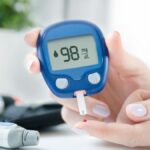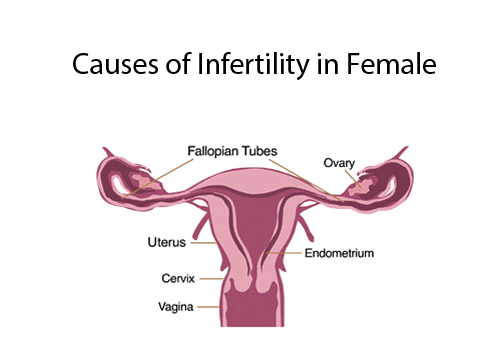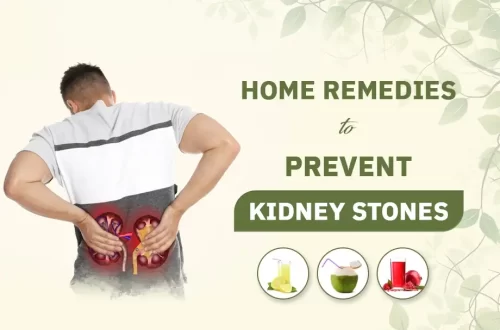Understanding What Gives You Heartburn
In this article, we’ll delve into what gives you heartburn or causes of heartburn, its symptoms, and provide tips on how to manage and prevent it.
Heartburn is a common condition that affects millions of people worldwide. It is characterized by a burning sensation in the chest and throat, often accompanied by a sour taste in the mouth.
If you’re experiencing heartburn, you’re probably wondering what gives you heartburn and how to find relief.
What Causes Heartburn?
Heartburn occurs when stomach acid flows back up into the esophagus, causing irritation and discomfort. The following are some of the common causes of heartburn:
- Food and Drinks
Certain foods and drinks can trigger heartburn in some people. These include:
- Citrus fruits and juices
- Tomatoes and tomato-based products
- Chocolate
- Caffeine
- Alcohol
- Spicy foods
- Fried foods
- Carbonated drinks
- Here’s an elaboration on each of the foods and drinks that can trigger heartburn in some people:
Citrus Fruits and Juices
- Examples: Oranges, lemons, limes, grapefruits, and their juices. Reason for Trigger: Citrus fruits and their juices are highly acidic. When consumed, the acid content can irritate the lining of the esophagus, leading to a burning sensation and heartburn. This is particularly problematic for individuals with gastroesophageal reflux disease (GERD), as the lower esophageal sphincter (LES) may not function properly, allowing stomach acid to escape into the esophagus.
Tomatoes and Tomato-Based Products
- Examples: Fresh tomatoes, tomato sauce, ketchup, salsa, and tomato juice. Reason for Trigger: Tomatoes are naturally acidic. Consuming tomato-based products increases the acidity in the stomach, which can cause the LES to relax and allow acid to reflux into the esophagus, resulting in heartburn.
Chocolate
- Reason for Trigger: Chocolate contains both caffeine and theobromine, which can relax the LES. When the LES relaxes, it becomes easier for stomach acid to flow back into the esophagus, causing heartburn. Additionally, chocolate has a high fat content, which can slow down digestion and increase the likelihood of acid reflux.
Caffeine
- Examples: Coffee, tea, energy drinks, and some sodas. Reason for Trigger: Caffeine is known to relax the LES, similar to chocolate. When the LES relaxes, it can result in stomach acid moving up into the esophagus. Furthermore, caffeine can increase stomach acid production, exacerbating the problem.
Alcohol
- Examples: Beer, wine, spirits, and mixed drinks. Reason for Trigger: Alcohol can relax the LES and increase stomach acid production, both of which contribute to heartburn. Additionally, alcoholic beverages can irritate the esophageal lining and increase sensitivity to acid. Drinking alcohol can also impair the esophagus’s ability to clear acid efficiently.
Spicy Foods
- Examples: Foods containing chili peppers, hot sauces, and other spicy seasonings. Reason for Trigger: Spicy foods can irritate the lining of the esophagus and stomach. For some people, this irritation can cause the LES to relax, allowing acid to escape into the esophagus. Capsaicin, the active component in chili peppers, can slow digestion and increase the risk of heartburn.
Fried Foods
- Examples: French fries, fried chicken, doughnuts, and other deep-fried items.
- Reason for Trigger: Fried foods are high in fat, which can slow down the digestive process and increase the likelihood of acid reflux. High-fat foods can also relax the LES, making it easier for stomach acid to enter the esophagus and cause heartburn.
Carbonated Drinks
- Examples: Sodas, sparkling water, and carbonated energy drinks. Reason for Trigger: Carbonated drinks can cause the stomach to bloat and produce more gas. This increased pressure in the stomach can force the LES to open, allowing acid to reflux into the esophagus. Additionally, many carbonated beverages are acidic, which can further irritate the esophagus and contribute to heartburn.
- Understanding these triggers can help individuals manage their diet to minimize heartburn symptoms. If heartburn is frequent or severe, it is important to consult with a healthcare provider for proper diagnosis and treatment.
- Eating Habits
The way you eat can also contribute to heartburn. Some eating habits that can trigger heartburn include:
- Eating too quickly
- Eating too much food
- Lying down after eating
- Eating close to bedtime
- Here’s an elaboration on how certain eating habits can contribute to heartburn:
Eating Too Quickly
- Reason for Trigger: Eating too quickly can lead to swallowing larger chunks of food and more air. This can cause bloating and increase pressure on the stomach, which may force the lower esophageal sphincter (LES) to relax and allow stomach acid to escape into the esophagus. Additionally, rapid eating can overwhelm the stomach’s ability to properly digest food, increasing the likelihood of acid reflux.
Eating Too Much Food
- Reason for Trigger: Overeating can distend the stomach, increasing pressure on the LES. When the stomach is overly full, it is more likely that stomach acid will be pushed up into the esophagus. Large meals can also take longer to digest, prolonging the period during which acid reflux can occur. Eating smaller, more frequent meals can help manage this risk.
Lying Down After Eating
- Reason for Trigger: When you lie down, gravity no longer helps keep stomach contents down. Lying down too soon after eating can allow stomach acid to flow back into the esophagus, especially if the LES is weak or relaxed.
This can be particularly problematic if you eat a large or heavy meal, which takes longer to digest. It is generally recommended to stay upright for at least 2-3 hours after eating to allow for proper digestion.
Eating Close to Bedtime
- Reason for Trigger: Eating close to bedtime means that digestion will occur while you are lying down, which can increase the likelihood of acid reflux. Additionally, the body’s digestive processes slow down during sleep, meaning food remains in the stomach longer.
This can increase the chances of stomach acid moving into the esophagus. It is recommended to avoid eating at least 2-3 hours before lying down to sleep to minimize the risk of nighttime heartburn.
- Adopting mindful eating habits can help reduce the frequency and severity of heartburn. If lifestyle changes are insufficient, seeking advice from a healthcare provider is recommended.
- Lifestyle Factors
Certain lifestyle factors can increase the risk of heartburn. These include:
- Obesity
- Smoking
- Stress
- Pregnancy
- Here’s an elaboration on how certain lifestyle factors can increase the risk of heartburn:
Obesity
Reason for Increased Risk: Excess body weight, especially around the abdomen, puts increased pressure on the stomach. This pressure can cause the lower esophageal sphincter (LES) to weaken or relax inappropriately, allowing stomach acid to reflux into the esophagus.
Additionally, obesity can contribute to a condition known as hiatal hernia, where part of the stomach pushes up through the diaphragm into the chest cavity, further increasing the risk of acid reflux and heartburn.
Smoking
Reason for Increased Risk: Smoking can weaken the LES, making it easier for stomach acid to reflux into the esophagus. It also reduces saliva production, and saliva helps neutralize stomach acid.
Moreover, smoking can stimulate acid production and damage the esophageal lining, making it more susceptible to acid irritation. The combination of these effects significantly increases the risk of heartburn in smokers.
Stress
Reason for Increased Risk: Stress does not directly cause heartburn but can exacerbate its symptoms. Stress can affect digestion, slowing it down and increasing the likelihood of acid reflux.
It can also lead to behaviors such as overeating, eating unhealthy foods, or eating too quickly, all of which can trigger heartburn. Furthermore, stress can cause the body to produce more stomach acid, increasing the chances of acid reflux.
Pregnancy
Reason for Increased Risk: During pregnancy, hormonal changes, particularly an increase in progesterone, can relax the LES, allowing stomach acid to reflux into the esophagus more easily.
Additionally, as the pregnancy progresses, the growing uterus puts pressure on the stomach, which can force stomach contents, including acid, into the esophagus. These factors combined make heartburn a common issue for pregnant women, especially in the later stages of pregnancy.
Addressing these lifestyle factors can significantly reduce the risk and severity of heartburn. Managing weight, quitting smoking, reducing stress, and understanding the impact of pregnancy on digestion can help individuals take proactive steps to minimize heartburn symptoms.
- Medical Conditions
Some medical conditions can also cause heartburn. These include:
- Gastroesophageal reflux disease (GERD)
- Hiatal hernia
- Asthma
- Diabetes
- Here’s an elaboration on how certain medical conditions can cause heartburn:
Gastroesophageal Reflux Disease (GERD)
Reason for Causing Heartburn: GERD is a chronic condition where the lower esophageal sphincter (LES) becomes weakened or relaxes inappropriately, allowing stomach acid to flow back into the esophagus.
This acid reflux irritates the esophageal lining, causing the burning sensation commonly referred to as heartburn. GERD is diagnosed when acid reflux occurs frequently (usually more than twice a week) and can lead to more serious complications if not managed properly.
Hiatal Hernia
Reason for Causing Heartburn: A hiatal hernia occurs when part of the stomach pushes up through the diaphragm into the chest cavity.
This anatomical change can disrupt the normal function of the LES, making it easier for stomach acid to reflux into the esophagus.
The presence of a hiatal hernia can increase pressure on the stomach, exacerbating the likelihood of acid reflux and heartburn, especially when lying down or bending over.
Asthma
Reason for Causing Heartburn: The relationship between asthma and heartburn is complex and bidirectional. Asthma can increase the likelihood of acid reflux because asthma attacks involve tightening of the airways and increased pressure in the chest, which can push stomach contents into the esophagus.
Conversely, acid reflux can worsen asthma symptoms by irritating the airways and lungs when stomach acid is aspirated or inhaled. The chronic cough associated with asthma can also contribute to LES dysfunction, further promoting acid reflux.
Diabetes
Reason for Causing Heartburn: Diabetes, particularly when poorly controlled, can lead to a condition called gastroparesis, where the stomach takes longer to empty its contents.
Delayed stomach emptying increases the risk of acid reflux because food and stomach acid remain in the stomach for extended periods, increasing pressure on the LES.
Additionally, neuropathy, a common complication of diabetes, can affect the nerves controlling the digestive system, further contributing to digestive issues and heartburn.
These medical conditions can significantly impact the frequency and severity of heartburn. Proper management and treatment of the underlying conditions can help reduce heartburn symptoms and improve overall quality of life.
- Medications
Certain medications can relax the lower esophageal sphincter, allowing stomach acid to flow back up into the esophagus. These include:
- Antihistamines
- Pain relievers
- Antidepressants
- Blood pressure medications
- Here’s an elaboration on how certain medications can relax the lower esophageal sphincter (LES) and contribute to heartburn:
Antihistamines
Examples: Diphenhydramine (Benadryl), loratadine (Claritin), cetirizine (Zyrtec). Reason for Causing Heartburn: Antihistamines are used to treat allergic reactions and conditions such as hay fever. They work by blocking histamine receptors, which can help reduce symptoms of allergies.
However, some antihistamines can also relax the LES, reducing its ability to prevent stomach acid from flowing back into the esophagus.
This can lead to increased instances of acid reflux and heartburn, especially with older, sedating antihistamines like diphenhydramine.
Pain Relievers
- Examples: Nonsteroidal anti-inflammatory drugs (NSAIDs) like ibuprofen (Advil, Motrin), aspirin, and naproxen (Aleve).
- Reason for Causing Heartburn: NSAIDs can irritate the stomach lining and increase stomach acid production, which can lead to inflammation and ulceration. Additionally, NSAIDs can relax the LES, making it easier for stomach acid to reflux into the esophagus. Chronic use of NSAIDs can exacerbate these effects, leading to more frequent and severe heartburn.
Antidepressants
Examples: Tricyclic antidepressants (TCAs) like amitriptyline, selective serotonin reuptake inhibitors (SSRIs) like fluoxetine (Prozac), and serotonin-norepinephrine reuptake inhibitors (SNRIs) like venlafaxine (Effexor).
Reason for Causing Heartburn: Antidepressants can affect the neurotransmitters that regulate muscle function, including those of the LES.
By altering the neural control of the LES, these medications can cause it to relax inappropriately, allowing stomach acid to reflux into the esophagus. This side effect is more common with tricyclic antidepressants but can also occur with SSRIs and SNRIs.
Blood Pressure Medications
Examples: Calcium channel blockers like amlodipine (Norvasc), nifedipine (Procardia); beta-blockers like metoprolol (Lopressor), propranolol (Inderal); and ACE inhibitors like lisinopril (Prinivil, Zestril).
Reason for Causing Heartburn: Many blood pressure medications can relax smooth muscle tissue, including the muscle of the LES. Calcium channel blockers and beta-blockers are particularly known for this effect.
By relaxing the LES, these medications can facilitate the backflow of stomach acid into the esophagus, leading to heartburn. ACE inhibitors can also cause coughing, which can increase intra-abdominal pressure and contribute to acid reflux.
- Patients experiencing heartburn due to these medications should consult with their healthcare provider. Adjustments to medication, dosage, or the addition of acid-reducing medications may help manage heartburn symptoms while continuing necessary treatments.
Symptoms of Heartburn
The symptoms of heartburn can vary from person to person. The most common symptoms include:
- A burning sensation in the chest and throat
- A sour taste in the mouth
- Difficulty swallowing
- Coughing or wheezing
- Chest pain or discomfort
How to Manage and Prevent Heartburn
While heartburn can be uncomfortable, there are several ways to manage and prevent it. Here are some tips:
1. Dietary Changes
To help manage heartburn, it’s important to avoid trigger foods and drinks and focus on a balanced diet that promotes digestive health:
- Lean Proteins: Opt for lean meats like chicken, turkey, fish, and plant-based proteins such as beans and legumes. These foods are less likely to trigger acid reflux compared to high-fat proteins like red meat or fried foods.
- Whole Grains: Incorporate whole grains such as oatmeal, brown rice, whole wheat bread, and quinoa. Whole grains are high in fiber, which can aid digestion and reduce the likelihood of acid reflux.
- Fresh Fruits and Vegetables: Choose non-citrus fruits like bananas, apples, and melons, and a variety of vegetables. These foods provide essential nutrients and fiber while being low in fat and acid, making them gentle on the digestive system.
- Low-Fat Dairy Products: If you consume dairy, opt for low-fat or fat-free versions of milk, yogurt, and cheese. High-fat dairy products can increase stomach acid production and relax the LES, leading to heartburn.
2. Eating Habits
How and when you eat can significantly impact the frequency and severity of heartburn:
- Eat Smaller, More Frequent Meals: Eating smaller portions more frequently can help prevent the stomach from becoming too full and putting pressure on the LES, which can cause acid reflux. Aim for 4-6 smaller meals throughout the day instead of 2-3 large meals.
- Avoid Lying Down After Eating: Stay upright for at least 2-3 hours after eating to allow your stomach to empty more effectively. Lying down too soon can increase the risk of acid reflux as gravity no longer helps keep stomach contents down.
- Avoid Eating Close to Bedtime: Try not to eat anything at least 2-3 hours before bedtime. This gives your stomach time to empty before you lie down, reducing the likelihood of nighttime heartburn.
- Raise the Head of Your Bed by 6-8 Inches: Elevating the head of your bed can help prevent acid reflux during the night. Use bed risers or a wedge pillow to elevate your upper body, which helps keep stomach acid from flowing back into the esophagus.
3. Lifestyle Changes
Adopting certain lifestyle changes can greatly reduce the occurrence of heartburn:
- Maintain a Healthy Weight: Excess weight can put pressure on your abdomen, pushing up your stomach and causing acid to reflux into your esophagus. Losing weight through a combination of diet and exercise can alleviate this pressure and reduce heartburn.
- Quit Smoking: Smoking weakens the LES and increases stomach acid production, both of which can contribute to heartburn. Quitting smoking can improve LES function and reduce the frequency of acid reflux.
- Manage Stress Through Relaxation Techniques: Stress can exacerbate heartburn by increasing stomach acid production and causing physical symptoms like indigestion. Techniques such as meditation, deep breathing exercises, yoga, and mindfulness can help manage stress and improve digestive health.
- Avoid Tight Clothing: Wearing tight clothing, especially around the abdomen, can put pressure on your stomach and LES, increasing the risk of acid reflux. Opt for loose-fitting, comfortable clothing to minimize this pressure.
4. Over-the-Counter Medications
There are several over-the-counter medications that can help neutralize stomach acid and relieve heartburn symptoms:
- Antacids: These medications, such as Tums, Rolaids, and Maalox, work by neutralizing existing stomach acid, providing quick relief from heartburn symptoms.
- Acid Reducers: H2 blockers, like ranitidine (Zantac) and famotidine (Pepcid), reduce the amount of acid your stomach produces. These medications are longer-lasting than antacids and can help prevent heartburn when taken before meals.
5. Prescription Medications
For severe or persistent heartburn, your doctor may prescribe stronger medications:
- Proton Pump Inhibitors (PPIs): Medications such as omeprazole (Prilosec), esomeprazole (Nexium), and lansoprazole (Prevacid) reduce stomach acid production more effectively than H2 blockers. PPIs are often prescribed for chronic heartburn and GERD and can help heal the esophageal lining.
- Histamine-2 (H2) Blockers: Prescription-strength H2 blockers, such as famotidine (Pepcid) and ranitidine (Zantac), also reduce stomach acid production and are used to treat frequent heartburn and GERD. These medications are typically less potent than PPIs but still effective for many patients.
By incorporating these dietary, eating habit, and lifestyle changes, along with appropriate medication use, individuals can effectively manage heartburn and improve their overall digestive health. If symptoms persist or worsen, it’s important to consult with a healthcare provider for further evaluation and treatment.
Home Remedies for Heartburn
In addition to the above tips, here are some home remedies that can help alleviate heartburn symptoms:
- Ginger: Ginger has natural anti-inflammatory properties that can help reduce inflammation in the esophagus.
- Aloe vera juice: Aloe vera juice can help soothe the esophagus and reduce inflammation.
- Baking soda: Baking soda can help neutralize stomach acid and relieve heartburn symptoms.
- Apple cider vinegar: Apple cider vinegar can help reduce inflammation in the esophagus and alleviate heartburn symptoms.
Conclusion
Heartburn is a common condition that can be caused by a variety of factors. By understanding what gives you heartburn, you can take steps to manage and prevent it.
Remember to make dietary changes, adopt healthy eating habits, and consider lifestyle changes to reduce your risk of heartburn. If your symptoms persist, consult with your doctor for further guidance and treatment.
FAQs
- What is heartburn?
Heartburn is a common condition characterized by a burning sensation in the chest and throat, often accompanied by a sour taste in the mouth.
- What causes heartburn?
Heartburn occurs when stomach acid flows back up into the esophagus, causing irritation and discomfort. Common causes include food and drinks, eating habits, lifestyle factors, medical conditions, and medications.
- What are the symptoms of heartburn?
The symptoms of heartburn include a burning sensation in the chest and throat, a sour taste in the mouth, difficulty swallowing, coughing
- How can I manage and prevent heartburn?
You can manage and prevent heartburn by making dietary changes, adopting healthy eating habits, and considering lifestyle changes. Avoid trigger foods and drinks, eat smaller meals, and raise the head of your bed by 6-8 inches. Maintaining a healthy weight, quitting smoking, and managing stress can also help.
- What are some home remedies for heartburn?
Some home remedies for heartburn include ginger, aloe vera juice, baking soda, and apple cider vinegar. These remedies can help soothe the esophagus, reduce inflammation, and neutralize stomach acid.
- When should I see a doctor for heartburn?
You should see a doctor for heartburn if your symptoms are severe, persistent, or accompanied by difficulty swallowing, chest pain, or difficulty breathing. Your doctor may prescribe medications or recommend further testing to rule out underlying conditions like GERD or hiatal hernia.
- Can heartburn be a sign of an underlying condition?
Yes, heartburn can be a sign of an underlying condition like GERD, hiatal hernia, asthma, or diabetes. If you experience persistent or severe heartburn symptoms, consult with your doctor to rule out any underlying conditions.
- How can I reduce my risk of heartburn during pregnancy?
During pregnancy, you can reduce your risk of heartburn by eating smaller meals, avoiding trigger foods and drinks, and raising the head of your bed by 6-8 inches. Wearing loose, comfortable clothing and avoiding tight belts or waistbands can also help.
- Can children experience heartburn?
Yes, children can experience heartburn, especially if they have a condition like GERD. If your child complains of chest pain or discomfort, consult with their pediatrician to determine the best course of treatment.
- How can I find long-term relief from heartburn?
You can find long-term relief from heartburn by making lifestyle changes, managing stress, and avoiding trigger foods and drinks. If your symptoms persist, consult with your doctor to determine the best course of treatment.
Additional Resources
- American College of Gastroenterology: www.gi.org
- National Institute of Diabetes and Digestive and Kidney Diseases: www.niddk.nih.gov
- American Heart Association: www.heart.org
By understanding what gives you heartburn and taking steps to manage and prevent it, you can find relief from this common condition and enjoy a healthier, happier life. Remember to consult with your doctor if your symptoms persist or worsen over time.

A graduate of Computer Science and Information Management Technology. Diploma – Caregiving, Certificates – Dementia and Diabetes Awareness and Management. A researcher, blogger, songwriter, singer and acoustic guitarist. Born in an environment where natural talents such as healing are imparted at our natural birth. This natural talents of healing is the result of our genetic inheritance and the training from family environment.














